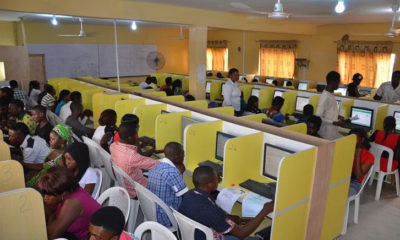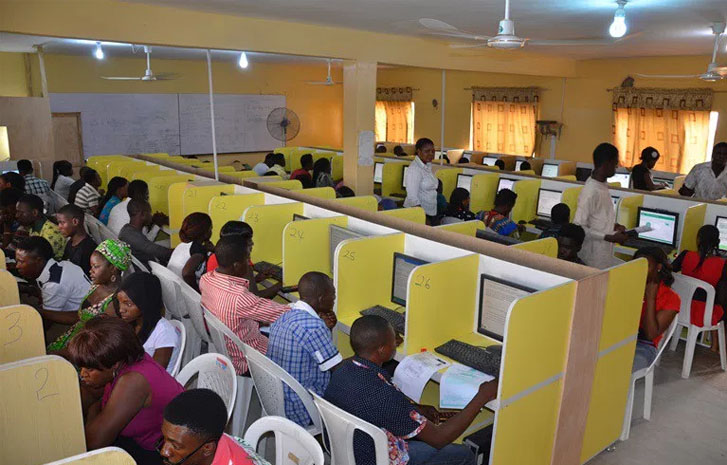Stanley Anigbogu, a 22-year-old student from Onitsha, Anambra State, Nigeria, currently studying Multimedia Development on full scholarship at The National School of Applied Sciences, Kenitra, Morocco, has been included in the top 50 shortlist for the Chegg.org Global Student Prize 2022, an annual $100,000 award to be given to one exceptional student that has made a real impact on learning, the lives of their peers and on society beyond.
Stanley Anigbogu was selected from almost 7,000 nominations and applications from 150 countries.
The Varkey Foundation partnered with Chegg.org to launch the annual Global Student Prize last year, a sister award to its $1 million Global Teacher Prize. It was established to create a powerful new platform that shines a light on the efforts of extraordinary students everywhere who, together, are reshaping our world for the better. The prize is open to all students who are at least 16 years old and enrolled in an academic institution or training and skills program. Part-time students as well as students enrolled in online courses are also eligible for the prize.
Stanley Anigbogu is a Nigerian-born changemaker, STEM advocate, entrepreneur and creative technologist studying Multimedia Development on full scholarship at The National School of Applied Sciences, Kenitra, Morocco. During his time in Morocco, he was recognized by the Nigerian Student Association as the most innovative/creative student in 2021. He is the founder of ArtecHubs Nigeria, a leading STEM skill acquisition company for young minds in southeast Nigeria, is passionate about closing the gender gap in STEM and reducing inequity among children in rural areas, and is also an internationally recognised, award winning innovator and filmmaker.
Stanley has also initiated a number of other projects targeted at addressing educational issues that affect children in Nigeria’s rural and suburban neighborhoods such as The Dream Box Initiative, Stem4Her which has to date equipped up to 1500 rural girls with skills in STEM, and Sparknuit, a disruptive startup providing reliable, available, and cheap sources of electricity for people in hard-to-reach areas as well as solar-powered lamps so that children may study and see clearly at night. Stanley’s initiatives have received global recognition from international organizations such as the Diana Award, and he has also participated as a facilitator and speaker at events such as the Nigeria Edtech Summit, Berlin Science Week, RDC Science Week, and Morocco Science Week.
Dan Rosensweig, CEO of Chegg, said: “Since its launch last year, the Global Student Prize has given incredible students all over the world a chance to share their stories, connect with each other, and reach influencers in education and beyond. Now, more than ever, students like Stanley deserve to have their stories told and have their voices heard. After all, we need to harness their dreams, their insights, and their creativity to tackle the daunting and urgent challenges facing our world.
“Our finalists this year have made a huge impact in areas from the environment to equality and justice, from health and wellbeing to education and skills, from youth empowerment to ending poverty. I can’t wait to see how this year’s inspiring cohort of changemakers use this platform to make their voices louder, and their work lift up even more lives”
Sunny Varkey, founder of the Varkey Foundation, said: “I extend my warmest congratulations to Stanley. His story is a testament to the crucial role that education plays in building a better tomorrow for us all. It is the key to solving humanity’s greatest challenges, from war and conflict to climate change to growing inequality. As time runs out to achieve the Sustainable Development Goals, it is more important than ever to prioritize education so we can face the future with confidence.”
Applications and nominations for this year’s Global Student Prize opened on Thursday 27 January and closed on Sunday 1 May. Students are being assessed on their academic achievement, impact on their peers, how they make a difference in their community and beyond, how they overcome the odds to achieve, how they demonstrate creativity and innovation, and how they operate as global citizens.
Last year’s winner was Jeremiah Thoronka, a 21-year-old student from Sierra Leone, who launched a start-up called Optim Energy that transforms vibrations from vehicles and pedestrian footfall on roads into an electric current. With just two devices, the start-up provided free electricity to 150 households comprising around 1,500 citizens, as well as 15 schools where more than 9,000 students attend.
The top 10 finalists of the Global Student Prize are expected to be announced in August this year. The winner, who will be announced later in the year, will be chosen from the top 10 finalists by the Global Student Prize Academy, made up of prominent individuals.
If students were nominated, the person nominating them was asked to write a brief description online explaining why. The student being nominated was then sent an email inviting them to apply for the prize. Applicants were able to apply in English, Mandarin, Arabic, French, Spanish, Portuguese and Russian. To join the conversation online follow @cheggdotorg.

 Naira4 weeks ago
Naira4 weeks ago


 Naira4 weeks ago
Naira4 weeks ago




 Naira4 weeks ago
Naira4 weeks ago




 Naira3 weeks ago
Naira3 weeks ago
 Commodities4 weeks ago
Commodities4 weeks ago


 News4 weeks ago
News4 weeks ago
 Travel4 weeks ago
Travel4 weeks ago




 Naira3 weeks ago
Naira3 weeks ago



















